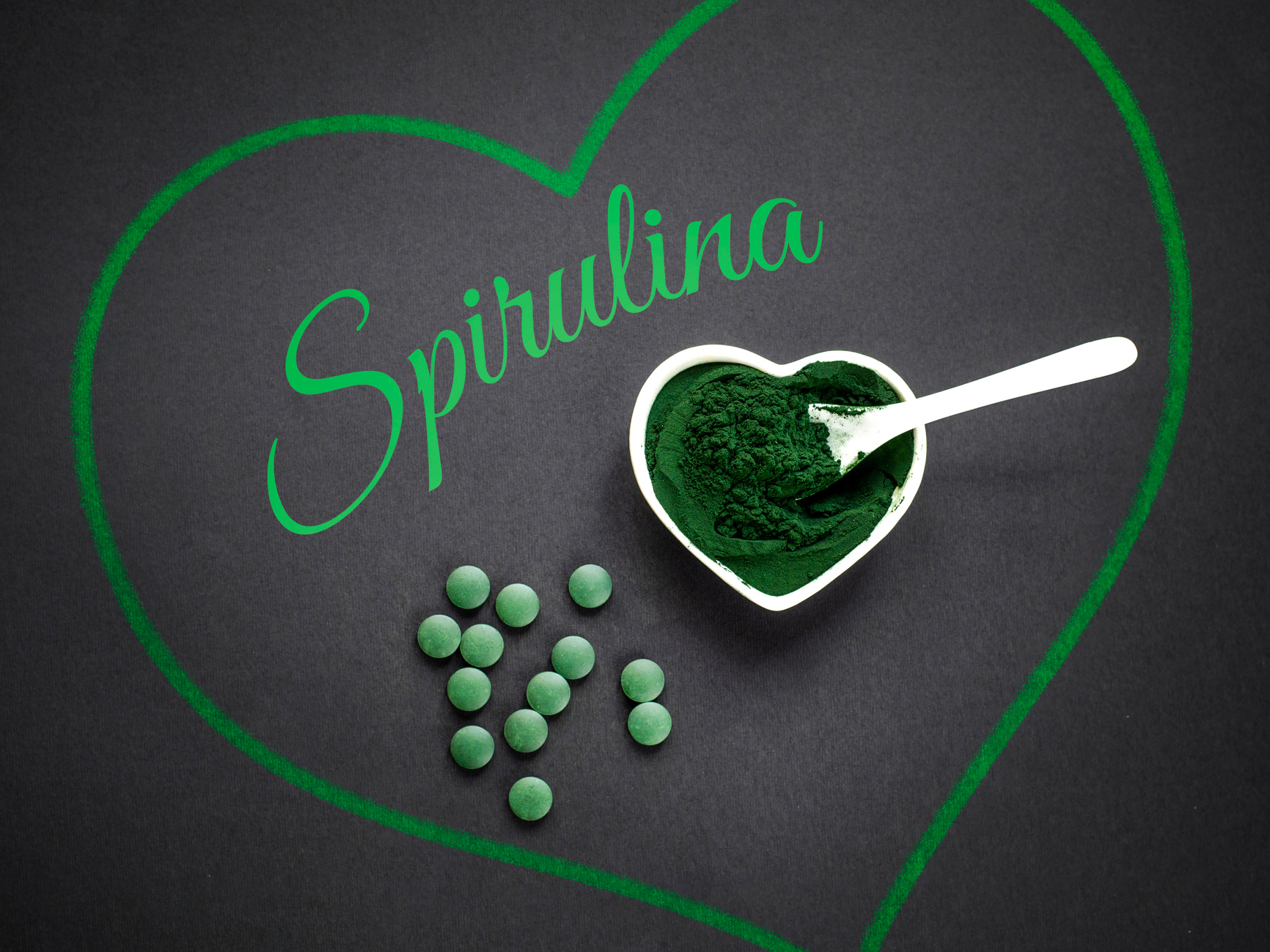Get Easy Health Digest™ in your inbox and don’t miss a thing when you subscribe today. Plus, get the free bonus report, Mother Nature’s Tips, Tricks and Remedies for Cholesterol, Blood Pressure & Blood Sugar as my way of saying welcome to the community!
Spirulina: How to use the superfood that’s your heart’s best friend

There’s no question that your heart is one of the most important organs in your body. And, if you don’t keep it healthy, you’re at risk of cardiovascular disease, heart attack, and even heart failure.
Of course, there are a number of ways that we’ve all heard about that can boost your heart health from exercising regularly and giving up smoking to eating more fiber, cutting down on saturated fats and sodium and quitting smoking.
But, you may not know that there is a supplement that you can sprinkle into your shakes, smoothies or just a glass of water that many experts are now recommending to keep your heart ticking along.
Antioxidant powerhouse
It’s called spirulina and it’s a form of blue-green algae that’s absolutely packed with the nutrients your whole body, including your heart, needs to stay healthy.
Even a single tablespoon gives you four grams of protein plus iron, copper, zinc, magnesium, potassium, B vitamins and more. This makes it super nutrient dense gram for gram.
And, it’s an antioxidant powerhouse.
You see, the main component of spirulina is phycocyanin. It’s what gives it its blue-green color and is a superior antioxidant for fighting free radical damage that can lead to inflammation. And, since inflammation has been linked to many chronic conditions, including heart disease, this makes spirulina your new best friend.
Supports healthy cholesterol
Spirulina has even been shown to promote healthy cholesterol levels.
In fact, a 2018 meta-analysis of spirulina research found that people who took spirulina supplements had lower levels of “bad cholesterol” or LDL, total cholesterol and triglycerides than those who took a placebo.
And, those aren’t the only benefits of spirulina when it comes to cholesterol.
Studies have also shown that spirulina has the power to inhibit the lipid peroxidation that can result in the oxidation of that bad cholesterol — damage that is one of the steps that take you from high cholesterol to heart disease.
Maintain healthy blood pressure
Spirulina could also help you maintain healthy blood pressure…
Research has shown that our favorite algae can help support lower blood pressure most likely because it helps activate nitric oxide in your blood vessels.
This nitric oxide sends out a signal for your blood vessels to dilate or widen, allowing blood to flow more freely. It’s like the difference in sucking clear water or a thick milkshake through a straw.
So I hope you see as many reasons as I do to give this superfood a try. Look for spirulina supplements or a high-quality greens powder that includes it. You’ll be glad you did.
Editor’s note: Have you heard of EDTA chelation therapy? It was developed originally to remove lead and other contaminants, including heavy metals, from the body. Its uses now run the gamut from varicose veins to circulation. Click here to discover Chelation: Natural Miracle for Protecting Your Heart and Enhancing Your Health!
Sources:
- Best supplements for the heart: Powder supplement that could help prevent heart disease — Express.co.uk
- Basic Report: 11667, Seaweed, spirulina, dried — National Nutrient Database for Standard Reference Legacy Release
- Quantifying the effects of spirulina supplementation on plasma lipid and glucose concentrations, body weight, and blood pressure — Diabetes, Metabolic Syndrome and Obesity: Targets and Therapy
- Circulating oxidized LDL: a biomarker and a pathogenic factor — Current Opinion in Lipidology
- Health Benefits of Blue-Green Algae: Prevention of Cardiovascular Disease and Nonalcoholic Fatty Liver Disease — Journal of Medicinal Food
- Effect of Spirulina Intervention on Oxidative Stress, Antioxidant Status, and Lipid Profile in Chronic Obstructive Pulmonary Disease Patients — BioMed Research International
- The hypolipidaemic effects of Spirulina (Arthrospira platensis) supplementation in a Cretan population: a prospective study — Journal of the Science of Food and Agriculture
- Antihyperlipemic and antihypertensive effects of Spirulina maxima in an open sample of Mexican population: a preliminary report — Lipids in Health and Disease
- Effects of dietary Spirulina on vascular reactivity — Journal of Medicinal Food












